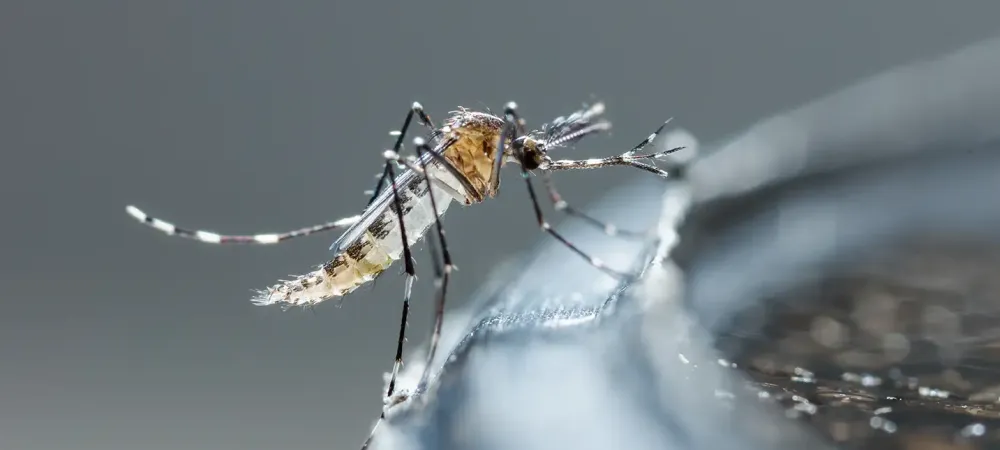What Every North Carolina Homeowner Should Know About Mosquitoes

Living in North Carolina means enjoying mild winters and lush greenery—but it also means dealing with mosquitoes for much of the year. These persistent pests aren't just annoying; they can carry harmful diseases and make your outdoor spaces unbearable. Understanding mosquito season, the types of mosquitoes in the region, and how to protect your yard with effective mosquito control can make all the difference.
When Is Mosquito Season in North Carolina?
Typical Timeline Across the State
In North Carolina, mosquito season usually begins in March and continues through October, depending on the region and weather conditions. A warmer-than-average winter can lead to early mosquito activity, sometimes as early as late February.
Mosquitoes thrive in warm, humid environments—something North Carolina offers in abundance. Extended warmth and rainfall create the perfect conditions for mosquitoes to breed and multiply, making mosquito prevention a top priority for homeowners.
Common Mosquito Species Found in NC
North Carolina is home to a variety of mosquito species. Some of the most common include:
- Aedes albopictus (Asian tiger mosquito): Easily recognizable by its black-and-white striped legs, this species is aggressive and bites during the day.
- Culex pipiens (Northern house mosquito): Active at night and known for spreading diseases such as West Nile virus.
- Aedes aegypti: Although less common, this mosquito can transmit Zika virus, dengue fever, and chikungunya.
Knowing which types of mosquitoes are active in your area can help you and your pest control provider design a more targeted mosquito treatment plan.
Are Mosquitoes in North Carolina Dangerous?
Yes. While most mosquito bites only cause itching and swelling, some species can carry and transmit dangerous diseases. In North Carolina, mosquitoes have been known to spread:
- West Nile virus
- La Crosse encephalitis
- Eastern equine encephalitis (EEE)
- Heartworm in pets
Because these diseases can be serious—or even fatal—it's critical to take mosquito control seriously, especially if you have children, elderly family members, or pets.
Why Mosquitoes Are So Common in North Carolina Yards
Several environmental and human-made factors make North Carolina yards a haven for mosquitoes. This includes:
- Warm, wet spring and summer seasons offer ideal breeding conditions.
- Shaded or wooded neighborhoods provide cool, moist areas for mosquitoes to rest and breed.
- Standing water in planters, birdbaths, toys, gutters, and unused containers creates perfect nurseries for mosquito larvae.
- Moisture-retaining landscaping, such as dense mulch, ivy, and poorly draining soil, can encourage mosquito activity.
The combination of climate and yard features in North Carolina makes it essential to stay ahead with proactive mosquito management.
When to Start Your Mosquito Control Plan
To get ahead of mosquito season, it's best to begin your mosquito control treatments in late March or early April. This ensures you target mosquitoes before they start reproducing in large numbers. We recommend the following schedule:
- First treatment: Should be applied before eggs hatch and larvae emerge.
- Ongoing treatments: Keep mosquitoes under control from spring through fall, especially during peak months like June, July, and August.
- Last treatment: Should be done around October or just before the first frost, when mosquito activity naturally declines.
DIY Mosquito Prevention Tips for Homeowners
In addition to professional mosquito services, there are a number of steps you can take at home to reduce mosquito populations. This includes:
- Eliminate standing water weekly (flowerpots, buckets, gutters, toys).
- Keep grass and shrubs trimmed to minimize shady resting spots.
- Use yellow “bug” lights in outdoor fixtures to reduce attraction.
- Install screens on windows and doors to keep mosquitoes out of your home.
- Apply larvicides to areas of standing water that cannot be drained.
While DIY solutions can help reduce risk, they’re often not enough for long-term control—especially in North Carolina’s climate.
Professional Mosquito Control vs. DIY: What Works Best?
While DIY methods are helpful, professional mosquito control provides longer-lasting and more effective results. Licensed pest control technicians have access to advanced tools and treatments that aren’t available over the counter.
Benefits of professional mosquito control include:
- Customized treatment plans based on your yard’s layout and mosquito species present
- Recurring visits to maintain a mosquito-free environment
- Targeted applications using EPA-approved products that are safe for your family and pets
- Expert advice on preventing future infestations
If you want a mosquito-free yard you can actually enjoy, professional help is the most reliable and efficient solution.
Hire Pest-X Exterminating, Inc
Mosquitoes in North Carolina are a serious problem—but with the right knowledge and tools, you can protect your yard and your loved ones. Starting mosquito control early in the season, eliminating breeding grounds, and investing in professional treatments will ensure that you stay a step ahead of these biting pests.
Don’t wait until mosquito season is in full swing. Contact Pest-X Exterminating, Inc today and enjoy a bite-free backyard all season long.
